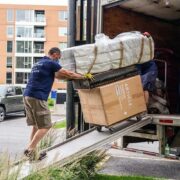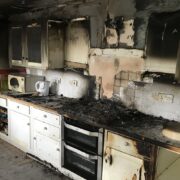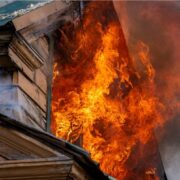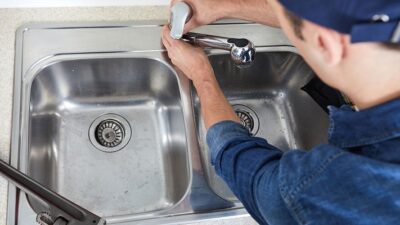Fire is a destructive force that can destroy a home, causing death, destruction of structures, and high financial costs. The greatest method to lower the chance of a fire in your home is to take preventive action. This article describes the most important steps to protect your house or business against fire hazards. It also discusses how important it is to be prepared for possible emergencies.
Install Smoke Alarms
Installing smoke detectors is the first step in protecting yourself from fire. These devices can alert users to a fire’s early stages, allowing them to leave the building and call for emergency help. Here are tips to ensure that your smoke alarms are effective.
- Location: Place smoke alarms on all levels of your home, including the basement and outside sleeping areas. Consider adding alarms to bedrooms in larger homes.
- Routine Maintenance: Replace your batteries once a month. If necessary, replace your entire unit once every 10 or more years.
- Combination Alarms: Consider installing combination alarms of smoke and CO for safety.
Create A Plan For Escape
Having a well-defined escape plan can save your life. Everyone in your household and workplace should understand the plan.
- Designated Entrances: Identify at minimum two ways of exiting each room within your home or office.
- The Meeting Point: Pick a spot everyone can meet after escaping.
- Drills: Conduct regular fire-fighting drills to ensure everyone knows what to do in an emergency.
Be Careful With Heating Sources
Heating systems can present a serious fire risk, especially during the colder months. Here’s a guide to using them safely.
- Maintenance:Schedule regular maintenance for your furnace and heating system.
- Space Heaters: Keep space heaters three feet away from flammable items. Always turn them off after leaving a room or when going to bed.
- Maintaining a Chimney: If you have fireplaces, clean and inspect them regularly. Creosote can easily ignite.
Practice Kitchen Safety
Fires often start in the kitchen, so taking safety precautions while cooking is vital.
- Stay Alert: Never leave cooking alone. If you will be away from the kitchen for a while, you can use an alarm clock or timer.
- Caution when using grease: Keep paper towels and other flammable materials away from the stove. If you are dealing with a grease explosion, never use water. Cover the pan and use a fire extinguisher specifically designed for grease.
Storing Flammable Material Safely
It is easy to cause fires by storing flammable items incorrectly. To keep these items safe, take the following precautions:
- Designated Container:Store combustible fluids (like gas, paint removers, and cleaning items) in very much ventilated puts from heat. Name your compartments plainly.
- Do Not Clutter: Keep your home free from clutter, especially near heaters and storage rooms. Clutter is a potential fire starter and can block escape routes.
Installing Fire Sprinklers
Installing a fire sprinkler system could be wise if you own an older property or plan on renovating. Fire sprinklers can:
- Put Out Fires Early: Sprinkler systems can put out a small fire or contain it before the fire brigade arrives. This will minimize damage.
- Protect Property: Installing sprinklers can offer you extra peace of mind.
Educate Yourself And Your Employees
One of the most effective methods of preventing fires is to educate people about fire safety in your workplace or home.
- Training for Fire Safety: Consider offering fire safety training, particularly at work, to educate employees about fire hazards and proper responses.
- Regular update:Keep everyone updated with new fire safety protocols and changes in escape routes.
Prepare For Emergencies
Despite your best efforts to prevent them, accidents may occur. Being prepared for emergencies, such as the aftermath of a fire, is essential.
- List of Emergency Contacts: Keep a list updated with emergency contacts, such as fire damage restoration in Charlotte.
- Insurance Policy: Verify that your property insurance includes coverage for fire damage and related restoration costs.
Conclusion
Protecting your home and loved ones by taking precautionary measures is critical. Installing smoke alarms, maintaining electrical equipment, practicing kitchen security, and being prepared to handle emergencies reduce the risk of a house fire. It is important to know that in the case of a disaster, water damage may need to be restored. Prioritizing the safety of fires today will lead to a safer and more secure environment tomorrow.










Comments